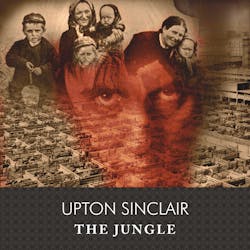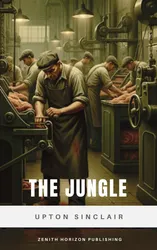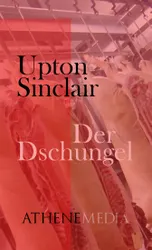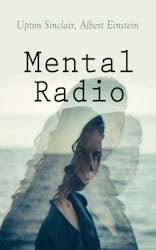The Jungle Upton Sinclair - The Jungle is a 1906 novel written by the American journalist and novelist Upton Sinclair (18781968). Sinclair wrote the novel to portray the harsh conditions and exploited lives of immigrants in the United States in Chicago and similar industrialized cities. However, most readers were more concerned with his exposure of health violations and unsanitary practices in the American meatpacking industry during the early 20th century, based on an investigation he did for a socialist newspaper.The book depicts working class poverty, the lack of social supports, harsh and unpleasant living and working conditions, and a hopelessness among many workers. These elements are contrasted with the deeply rooted corruption of people in power. A review by the writer Jack London called it, "the Uncle Tom's Cabin of wage slavery".Sinclair was considered a muckraker, or journalist who exposed corruption in government and business.He first published the novel in serial form in 1905, in the Socialist newspaper, Appeal to Reason, between February 25, 1905 and November 4, 1905. In 1904, Sinclair had spent seven weeks gathering information while working incognito in the meatpacking plants of the Chicago stockyards for the newspaper. It was published as a book on February 26, 1906, by Doubleday and in a subscribers' edition.A film version of the novel was made in 1914, but it has since become lost.

90 Masterpieces You Must Read (Vol.1) : Novels, Poetry, Plays, Short Stories, Essays, Psychology & Philosophy: The Madman, Moby-Dick, Siddhartha, Crime and Punishment, Hamlet, Great Expectations, Little Women, Meditations, The Einstein Theory, Heart of Darkness, The Red Badge of Courage
Walt Whitman, Herman Hesse, George Eliot, Kahlil Gibran, Anton Chekhov, Herman Melville, Oscar Wilde, Fyodor Dostoevsky, Nikolai Gogol, James Joyce, Henry David Thoreau, William Shakespeare, T. S. Eliot, John Keats, Charles Baudelaire, Walter Scott, Daniel Defoe, Louisa May Alcott, Jane Austen, Charlotte Brontë, Emily Brontë, Anne Brontë, Leo Tolstoy, Benito Pérez Galdós, William Makepeace Thackeray, Pierre Choderlos de Laclos, R.D. Blackmore, Alexandre Dumas, Marcel Proust, D. H. Lawrence, Charles Dickens, Thomas Hardy, Henry James, Guy de Maupassant, Princess Der Ling, Victor Hugo, Juan Valera, Anthony Trollope, Stephen Crane, E. M. Forster, Theodore Dreiser, Margaret Cavendish, Upton Sinclair, Plato, Apuleius, Marcus Aurelius, Sun Tzu, Voltaire, Miguel de Cervantes, Giovanni Boccaccio, Frederick Douglass, Sigmund Freud, H. A. Lorentz, Wallace D. Wattles, James Allen, Agatha Christie, Arthur Conan Doyle, Joseph Conrad, H. P. Lovecraft, Washington Irving, Mary Shelley, H. G. Wells, Edgar Allan Poe, Ernest Hemingway, L. Frank Baum, Robert Louis Stevenson, Mark Twain, Selma Lagerlöf, Jack London, Jules Verne, Lewis Carroll, Frances Hodgson Burnett, Rudyard Kipling, George Bernard Shaw, Soseki Natsume, Johann Wolfgang Goethe, Edgar Rice Burroughs, Brothers Grimm, Hans Christian Andersen
book
The Jungle
Upton Sinclair
audiobook
Am Fließband : Roman über Henry Ford und Abner Shutt
Upton Sinclair
book
The Jungle : A Powerful Tale of Survival, Corruption, and Reform in America's Meatpacking Industry
Upton Sinclair, Zenith Horizon Publishing
book
The Jungle : A Powerful Exposé of Labor, Corruption, and the American Dream
Upton Sinclair, Zenith Evergreen Literary Co
book
The Jungle : Exposing the Truth
Upton Sinclair, Zenith Crescent Moon Press
book
Entre dos mundos
Upton Sinclair
book
El fin del mundo
Upton Sinclair
book
The Goose-step: A Study of American Education
Upton Sinclair
book
180 Masterpieces of World Literature (Vol.1) : Leaves of Grass, Siddhartha, Middlemarch, The Jungle, Macbeth, Moby-Dick, A Study in Scarlet…
Jules Verne, Lewis Carroll, Sigmund Freud, Charles Dickens, Plato, Mark Twain, Walt Whitman, Oscar Wilde, Edgar Allan Poe, William Shakespeare, Charlotte Brontë, Anne Brontë, Emily Brontë, Henry David Thoreau, Henry James, Louisa May Alcott, Victor Hugo, Frances Hodgson Burnett, Jane Austen, Herman Melville, James Allen, George Eliot, Walter Scott, Thomas Hardy, Daniel Defoe, Agatha Christie, Upton Sinclair, Anthony Trollope, Marcel Proust, Charles Baudelaire, William Makepeace Thackeray, Theodore Dreiser, Voltaire, Frederick Douglass, John Keats, James Joyce, Kahlil Gibran, H. G. Wells, T. S. Eliot, D. H. Lawrence, E. M. Forster, Marcus Aurelius, Hans Christian Andersen, Anton Chekhov, Leo Tolstoy, Fyodor Dostoevsky, Nikolai Gogol, Miguel de Cervantes, Wallace D. Wattles, Brothers Grimm, Herman Hesse, Sun Tzu
book
Der Dschungel
Upton Sinclair
book
Mental Radio : Does it Work and How?
Upton Sinclair, Albert Einstein
book
